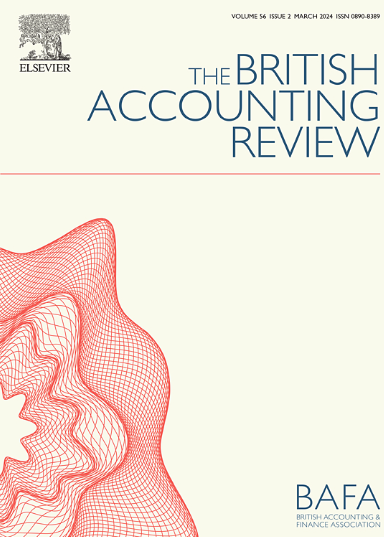上司反馈信号在审计中的作用和效果:来自一批早期职业审计师的证据。
IF 5.5
3区 管理学
Q1 BUSINESS, FINANCE
引用次数: 0
摘要
上司的反馈意见对于培训和社会化早期职业审计师至关重要。上司反馈做法和风格的一个基本方面和选择,是侧重于鼓励好的表现还是阻止差的表现。我们认识到,职业生涯初期的审计师很可能会在与最亲密的上司之间持续而广泛的反馈关系中,同时收到关于良好绩效和不良绩效的反馈。工作与生活并存的现实意味着,必须在两者不同程度并存的框架内评估上司对特定绩效反馈信号的倾向所产生的影响。我们就最亲近上司的反馈信号如何影响早期职业审计师的时间少报和内在工作动机这两个与审计质量相关的问题提出了假设。我们发现,上司对负面绩效的反馈与少报时间的增加和内在动机的降低有关。而对积极绩效的反馈则会减少少报时间的情况,并支持内在动机的发展。总之,我们的结果支持强调主管选择提供反馈的绩效类型。本文章由计算机程序翻译,如有差异,请以英文原文为准。
On the role and effects of supervisor feedback sign in auditing: Evidence from a cohort of early career auditors.
Supervisor feedback is essential for training and socialising early career auditors. One fundamental aspect and choice of a supervisor's feedback practice and style is whether to focus on encouraging good or discouraging poor performance. We acknowledge that early career auditors likely receive feedback on both good and poor performance in ongoing and extended feedback relationships with their closest supervisor. A work–life reality that implies that the effects of supervisors' inclinations towards a specific performance feedback sign must be assessed within a frame in which they coexist to varying degrees. We generate hypotheses on how the feedback sign from the closest supervisor affects early career auditors' underreporting of time and intrinsic work motivation, which are two matters related to audit quality. We found that supervisor feedback on negative performance was associated with increased underreporting of time and decreased intrinsic motivation. Feedback on positive performance lessens underreporting of time and supports the development of intrinsic motivation. In summary, our results support emphasising the type of performance for which supervisors choose to provide feedback.
求助全文
通过发布文献求助,成功后即可免费获取论文全文。
去求助
来源期刊

British Accounting Review
BUSINESS, FINANCE-
CiteScore
8.60
自引率
3.90%
发文量
39
审稿时长
76 days
期刊介绍:
The British Accounting Review*is pleased to publish original scholarly papers across the whole spectrum of accounting and finance. The journal is eclectic and pluralistic and contributions are welcomed across a wide range of research methodologies (e.g. analytical, archival, experimental, survey and qualitative case methods) and topics (e.g. financial accounting, management accounting, finance and financial management, auditing, public sector accounting, social and environmental accounting; accounting education and accounting history), evidence from UK and non-UK sources are equally acceptable.
 求助内容:
求助内容: 应助结果提醒方式:
应助结果提醒方式:


